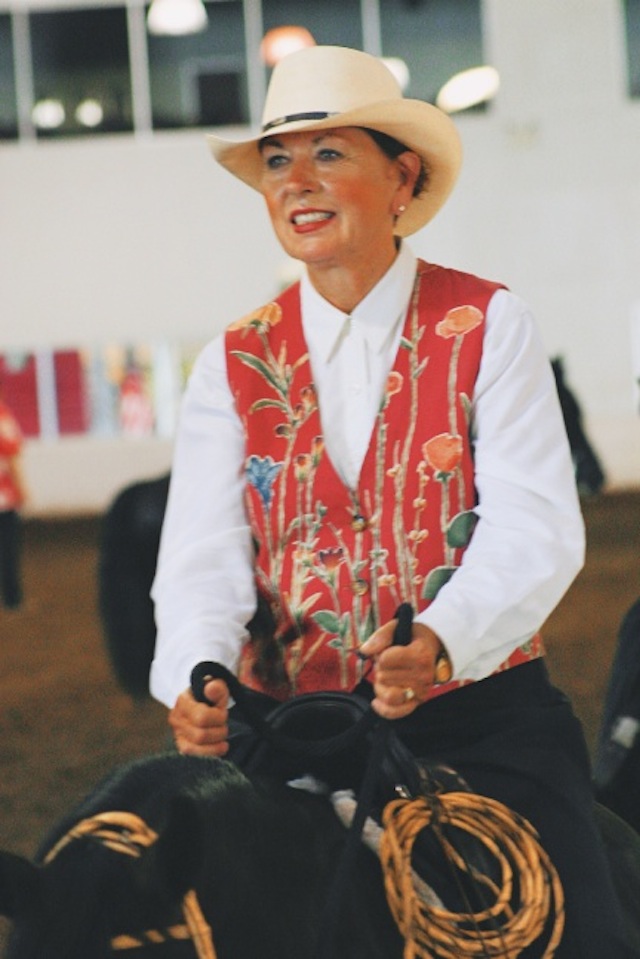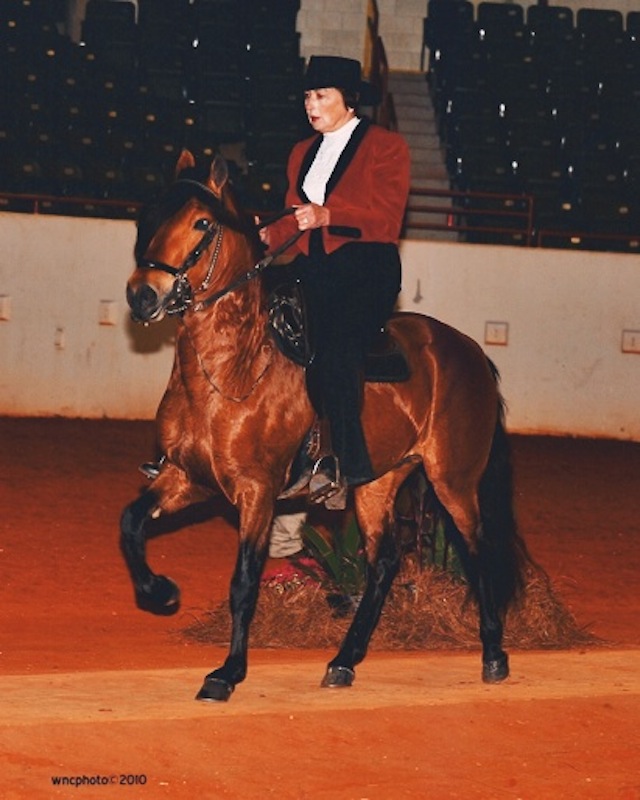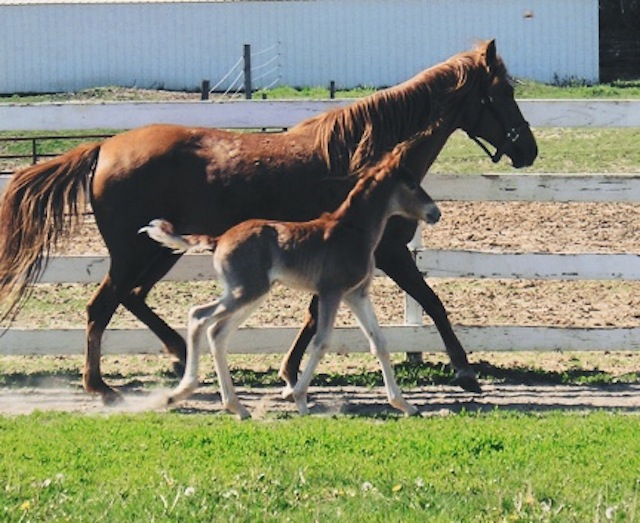Spotlight Dr. Annette Haines
Spotlights
We have so many nice things to say about Dr. Haines. She’s an inspiration and a guide to so many. We couldn’t be more excited to introduce you to her marvelous mind and her upright, captivating spirit. We hope that the lines of the future of Montessori are drawn by the generous heart of Dr. Haines. We hope you enjoy reading the exchanges as much as we did!
Q: Can you tell us a little bit about yourself? Your background, your interests, your dreams?
A: A bit about myself? Oh my, where do I begin? With a whopping 65 years to recount you really don’t want my memoir here. I was born and raised in the Midwest. Actually, I still live close to where I was born. Dr. Montessori was right about the absorbent mind—we learn to love where we grow up. I was a pretty normal kid and went to public school. It wasn’t until the university that I discovered learning and then I became ravenous to learn everything. I have a bachelors in English Literature, a Masters in Curriculum and Instruction and a Doctorate in Education with an emphasis on “the learner and learning theory.”
My interests are in conservation of natural resources, children, and animals. I also paint in oils when I have time and have dabbled in stained glass.
My dream is to pretty much do what I am doing. I am living my dream and I wake up every morning and shake my head and wonder why I am so fortunate to wake up today to another day.
Q: Now that the hardest question is out of the way: What’s your favorite color?
A: My favorite color is green. Always has been. This summer we had a drought and I painted my nails green. Then it rained. Green is life.
Q: Do you have a favorite book? How about a film?
A: Favorite Book? This is hard. As an English Lit. Major I read enough fiction to choke a goat (Spencer, Milton, Dante, Wordsworth, D.H. Lawrence, etc.) and so I spent at least two decades reading non-fiction—which is still my favorite—science, biology and science stuff. But I find the quality of both fiction and non-fiction has diminished lately and have been having trouble finding anything good to read. Have you read Sir James Barrie’s Peter Pan? Three other oldies but goodies might include:
1) The Alphabet Versus the Goddess: The Conflict Between Word and Image by Leonard Shlain (1999) 2) The Origin of Consciousness in the Breakdown of the Bicameral Mind by Julian Jaynes 1976). 3) The Ascent of Man by Jacob Bronowski (1973).
Q: When you close your eyes late at night, and imagine waking up and starting a new adventure: what is that adventure?
A: I have two imaginary adventures and they are antithetical to each other. The first is to have a permanent training center in the South St. Louis near Tower Grove Park and the Botanical Garden where we could have academic and summer courses and maybe occasionally an elementary or A-I course, etc. My second adventure is to move to the end of a long one way road in Montana with my dogs and two (yes, only two) horses…where I would hear nothing but the sound of cawing birds, a gurgling stream and wind in the pines.
Q: Can you tell us about about Red Fox Paso Finos, your horse training, breeding and training facility?
A: Oh the horses! Where do I begin? My husband and I have been ‘doing’ horses since 1995 when we moved to my parents’ farm in Troy, Illinois. Dad had just died and the place was in shambles. The fences were falling down and (oh well, I won’t go into all that). Bit by bit we have grown a horse business—breeding, raising, training, and selling Paso Fino horses. We now have a herd of about 30 mostly young horses. We have a full-time trainer and another fellow who cleans stalls and feeds. When I’m not doing Montessori, I work with the horse clients, help them with their horses, manage the property and oversee the operation, which could certainly be a full time job.
Q: Are there overlaps to your work there, and in the Montessori world?
A: There are many overlaps between my work with the horses and my work with Montessori. I read somewhere that the IQ of a horse is about that of a normal 4 year old. They have many of the same needs and characteristics. They are emotional learners. They need repetition. They seek pattern and consistency. They are harmed by abuse and resist being pushed. They love ritual, a constant daily schedule, and patterns of movement that they can count on. Any change causes upset, perhaps even illness. Horses can be therapeutic for the adult humans who work with them but first the adult humans have to control their own movements and their own emotions. I told Bobby that someday I wanted to write a book called Of Horses and Children.
Q: What advice do you have for new Montessori schools? With that in mind, we suppose the same question can be applied to established Montessori schools.
A: The advice I would give to new schools (and old schools) is to follow the ‘album’ for the corresponding plane of development and follow the AMI Guidelines for School Recognition. These are not easy things to do; they separate the good schools, the good programs, the good classrooms—real Montessori—from the rest.
Q: How have things changed since you first got started in the field of education?
I began in education in the 1960’s and the big thing was Bloom’s Taxonomy. Nothing has really changed in traditional education in the last 50 years, but they change the jargon of the latest, greatest thing. First it was outcomes based, then it was assessment based, then it was researched based…Come on. None of this really has anything to do with what you do on a daily basis with a child. That’s why I am a Montessorian.
Q: Did you have a “Montessori Moment?”
A: I have had many “Montessori Moments.” I won’t bore you with them all. But I think the most important realization was when, as a young teacher, I went back to the training center to begin Training of Trainers and, still teaching, tried to do what the album said, down to the tiniest detail, in my presentations with the children. Now that was an epiphany. If you do that, you will have just amazing success.
Q: What’s your favorite Montessori quote?
A: My favorite quote comes from a little pamphlet called “Peace and Education.” In it she talks about how our age represents a time of crisis…a period of passage from one era to another comparable only to the opening of a new biological or geological period in which new conditions of life will be realized which have never existed before. The natural boundaries of mountains, deserts and seas no longer limit man, “now that he can fly over them.” (1975, p. 30) In this new age, she says, “laws and treaties” will not be enough; the limits will have to come from within. For this, we need a fundamental change in education, for —
“the child who has never learned to act alone, to direct his own actions, to govern his own will, grows into an adult who is easily led and must lean upon others. (1975, p. 23.)”
And then there is good stuff in the 1946 Lectures. For example:
Just imagine what a society would be like that was quiet, a society without movement. Think what would happen if all men stopped moving – if only for one week. What would happen? Everyone would die. It is not a question of social life, but of work. It is not a question of individual gymnastics. If the whole society of men all over the world made nothing but uncoordinated, jerky movements they would die in a short time. All their energies would be consumed for nothing.
Society is a complex arrangement of individuals, each of whom moves differently from the other. Keep in mind the construction of the world – each organism moves to suit its own purpose. Imagine what it would be like if all the plants stopped moving. There would be no more fruit or flowers – there would be too much poisonous gas in the air. If everything stopped – if the birds remained motionless in the trees or if the insects fluttered to the ground and remained still, if the wild beasts did not move through the jungle or if the fish stopped swimming in the water – what a terrible world it would be.
Immobilization is impossible. Nature gives a useful purpose to each animal. This is the philosophy of movement: all life is movement. Each organism has its own movement for its own purpose. The creation of the world is a harmony of all these purposeful movements.
The whole series of 1946 Lectures probably constitutes my favorite quote…I love every sentence.
Q: What do you think is the best introduction to Montessori?
A: The best introduction to Montessori is as a parent. Young parents are in a sensitive period and open and looking for ideas that resonate with what they are experiencing. My first introduction to Montessori was as a young mother and it was like a conversion experience. I did not need to understand it with my head; I immediately understood it with my heart.
Q: What continues to inspire you about Montessori?
A: What continues to inspire me is that it works today just as it did over 100 years ago and the children continue to reveal themselves in the same way as they revealed themselves to Dr. Montessori.
Q: How do you feel that Montessori can impact communities?
A: Montessori can only impact communities when it impacts more children and families. It must not remain a fringe phenomenon. Nor can lousy Montessori speak for the method. It must be good, quality, authentic Montessori and this must be available for everyone, everywhere. What a pipe dream!
Q: In what ways do you envision the future of education?
A: I don’t know. Sometimes I get weary and depressed. No one seems to ‘get’ it and public education seems to keep spinning around in the same old circle. Private schools like yours will have to continue to be the model for the time being, if only to hold on to the idea long enough for it to replicate and spread.
Q: Lastly, do you have another “worn littles suitcase, zipped and locked with a tiny padlock”, like “The 1946 London Lectures by Maria Montessori”, which was just recently published?
A: Actually, I do. It is the 1946 London Lectures of Mario Montessori, which I envision to eventually be a companion volume. Dr. Maria Montessori and her son Mario worked together and both gave the course. Without Mario’s words, Maria’s are still incomplete. I have been trying to persuade the family to publish the 1946 Mario Lectures but up until this point they have been reluctant to do so.
Written by:
Baan Dek



